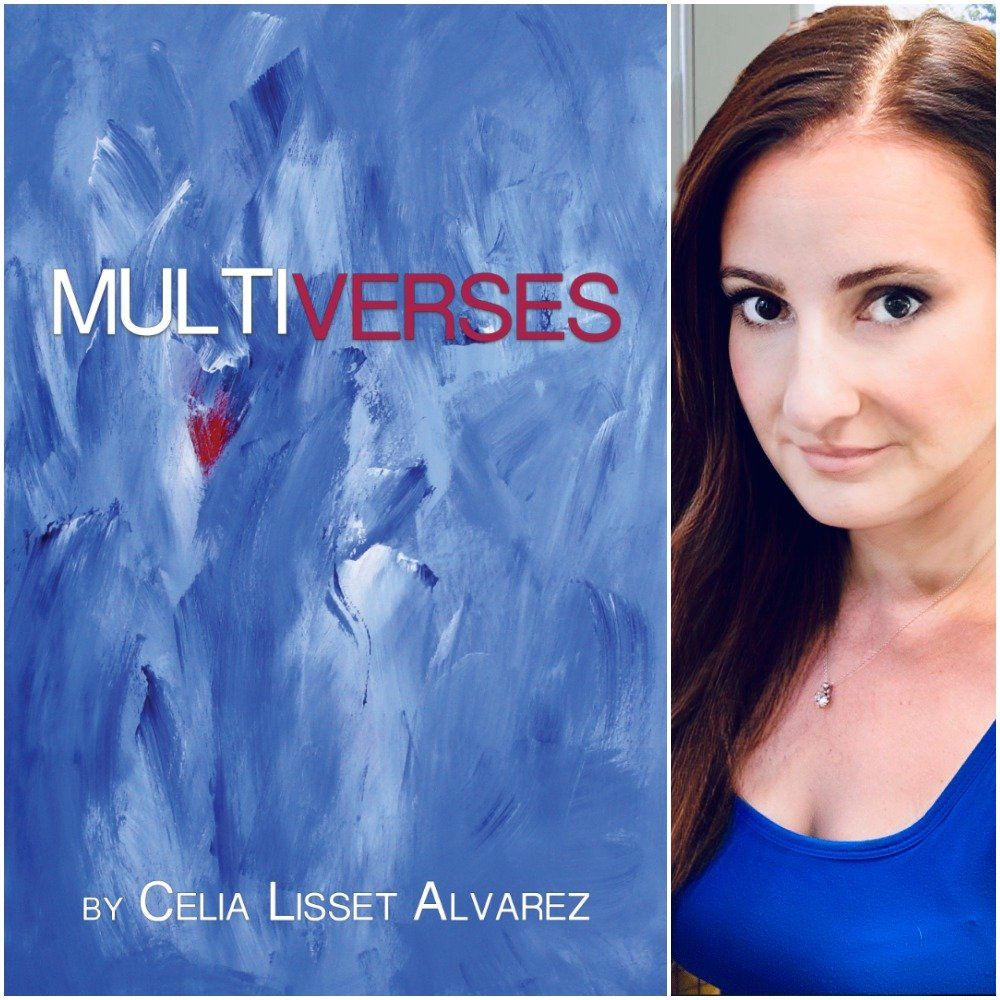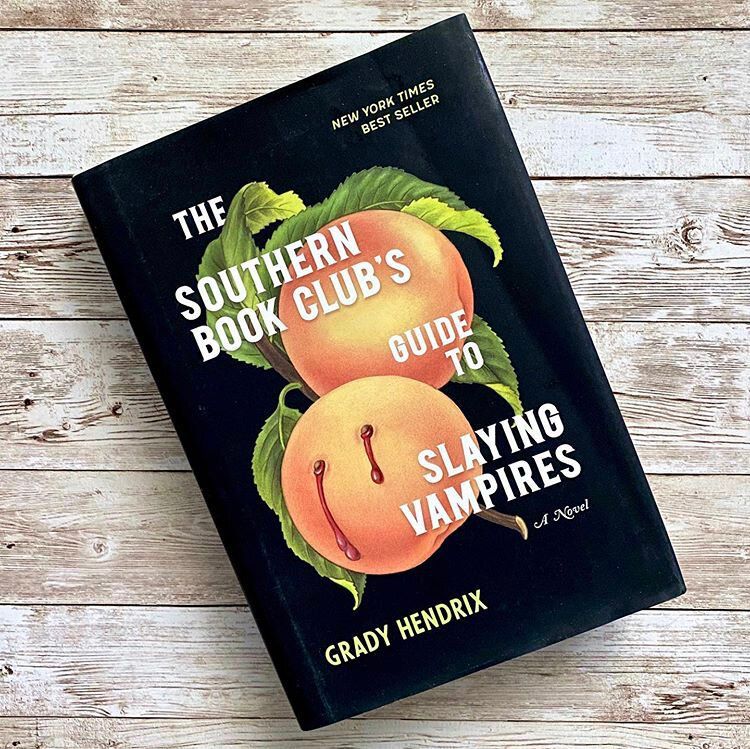Dropping ‘Bella off at School
December 19, 2016
I don’t know how she can tell it but whenever I say goodbye to her she lowers her eyes and looks down briefly to keep from telling me that there is too little time left that we’re parting in […]
I don’t know how she can tell it
but whenever I say goodbye to her
she lowers her eyes and looks down
briefly to keep from telling me that
there is too little time left
that we’re parting in such a way
that we’re sure to see each other again
that it’ll forever be like this.
That I’ll always make her breakfast
that we’ll always hold hands before she falls asleep
that we’ll sit and marvel at the spiny orb weaves
bridging the cacti on our front lawn.
That to make believe I’ll love you forever is shameful.
What I do know is that by loving actively and with all aplomb
filling each measure of time with will and purpose
it will be like forever
no action isolated
that way, nothing is temporary.

As I turned the last page in Brian Evenson ‘s, Good Night, Sleep Tight, came to me why the title story in his latest collection is chosen. Throughout the book, the reader (this reader, me) decides whether the numinous triggers its characters’ neuroses, victims -- sometimes told in third person, past, sometimes shared in first, present -- or does the opposite occur: neurosis invites/summons the uncanny? In other words, are individuals' trials with the uncanny reactive or affective? Brian Evenson encourages his characters to explore their fears, providing a comfortable parenthetical escape, a respite in memories. This is useful to readers. Does Brian Evenson invite his readers to laugh at or defang existential obstructions in ‘being’, that is, attending to what is needed at any moment, with laughter? We shouldn’t ask him. It’s reductionist, and takes away the charm of writing: not knowing where a story may take you. To paraphrase poet Paul Muldoon: good poetry/prose comes from above and goes THROUGH the writer, not FROM him/her/they. I found many of the stories, especially "Good Night, Sleep Tight," equally funny as disturbing. That's brilliant. I guffawed when I got to its most telling (betraying?) line:

This multi-award winning feature has caused a stir in dozens of film festivals around the world, and it was my privilege to have been part of the team. Thank you Bistoury Physical Theatre & Film. Who wants to see the most provocative and madcap, feature length film about faded and celebrity culture? Click the following link to ... ... Rent Maniac Miki on Amazon Prime Video, A Study on Faded Glory and Celebrity Culture. Starring: Carlos Antonio León , Lola Amores , Chaz Mena Produced by Bistoury Physical Theatre & Film. Written & Directed by Carla Forte, Cinematography & Editing by Alexey Taran . MANIAC MIKI follows Miki and his friends as they grapple with reality after being cast away from a world of magic and unfulfilled dreams. Now depressed and stuck somewhere in South Florida, the trio looks back at an era of fame and glory that will never come back. - IMDB Page
Splatterpunk Primer: Gridlock

Interviewed by Chaz Mena 15 March, 2021 Celia, you've been a poet for a while, published in many literary journals around the country. You're a mother of two beautiful little girls, the editor of Prospectus: A Literary Offering. You’re keeping house with your husband, Rafael Montes , a renowned professor at St. Thomas University. HOW DO YOU DO IT? I don’t! I haven’t done the laundry in over a month! It seems like I do because I’m very good at assessing and prioritizing. I figure out what the most important thing that needs to get done now is, and I do it until it’s done. The bad part of that attitude is that I let things that are not priority no. 1 fall away, like the laundry, for example. But often it’s more serious things, like my writing and my constant battle with mommy guilt. But I’m a workaholic. It’s what I’m best at. Is Multiverses your first book-length collection? How did Finishing Line Press come across your manuscript? Was yours an unsolicited submission, or had they contacted you? Tell us. Yes, I had two chapbooks before Multiverses , my first full-length collection. I was looking for places to send it to when I came across the fact that Finishing Line was now publishing full-length collections. That was not the case when The Stones came out. Of course I sent it to them, and they accepted it right away. The genesis of Multiverses is clear to your reader. Would you feel comfortable describing to us that moment when you decided - if it was a conscious choice at all! - to have it become book-length? Were you planning an arc or a structure from the beginning? I knew I had a lot to say, and that it had a narrative arc, but I wasn’t thinking about length as I wrote. I wrote until I finished saying what I wanted to say, and then I looked at the page count and realized I had gone beyond chapbook length. At that point I was surprised because it’s very hard for me to write things that go well together, which is what you look for when you’re trying to write a full-length collection. My writing is all over the place, so it’s hard for me to publish more than individual poems in journals. I'm struck by the many epic conventions implemented: beginning in the middle, a tribute to ancestors, a type of arming for battle as you and Rafael prepare for the infant's arrival, the inciting loss as the gods turned their backs to you, the subsequent katabasis (descent into the Underworld) wherein long-passed relatives file in, rehearsing family memories helping you in your trials, etc. Think of it as a mini-epic. The events were epic to me, and I wrote them so. I still don’t believe it’s possible to capture in words the loss of a child. The gut-wrenching, universe-shaking, time-bending nature of seeing such a tiny, innocent creature suffer so much only to die in such a horrific way as my son did. It can’t be spoken of, only remembered. That’s the epicenter of the book, and from there sprout other losses and memories so that it seems like there’s a sort of temporal journey taking place. The past is haunted by the present—the glossy photographs and memories of parents and grandparents when they were young and full of vigor that you know now went nowhere. Our parents’ immigrant generation was epic. I still remember when they used to talk about getting back to their Ithaca, Cuba. They never made it. What was to be a temporary home became their last resting place. If there is no pathos in that, I don’t know where there is. Thinking about it makes me cringe. When I lost my son, I became unhinged. I had to remake someone new from scratch. The materials I had at hand were memory and desire. The memories grounded me while the desire to erase that one event in my life and make everything okay again sent me flying apart. Multiverses comprises pieces that don’t fit. They are shards of a broken mirror that can’t be glued back together no matter how hard you try. Pieces are lost, shattered irretrievably . From there comes the sense of an epic quest at hand, a quest to rebuild my psyche, perhaps. But it’s a failed quest that’s resolved only in fantasy. Let's talk about the verse. The meter is dactyl in the beginning, fitting for a lament, as it begins with a stressed syllable followed by two unstressed: a sudden lashing out, followed by a limping recovery. The narrator's voice is tripped up as if wounded, hobbling. It's very evocative and draws great sympathy from your reader. Later, the voice changes and more disparate tones (meters) play out. You also change lengths - even using alexandrines! Was this planned? Yes and no. I was very interested in preserving the breath of the words, of writing as if I were speaking directly. When I noticed there was a certain pattern or the possibility for a certain pattern—the dactyl and the alexandrine, as you point out, the trochee, too—I chose to follow that pattern as long as it didn’t result in violating my idea of the breath. I didn’t feel that this subject fit with too much structure; the whole point of the book is that “Things fall apart; the centre cannot hold; / Mere anarchy is loosed upon the world.” That doesn’t jive well with neat little patterns, so I let anarchy reign when it should. There is one sonnet, but it’s a nonce sonnet. The word and/or concept of "illusion" in English and its translation into Spanish crop up. Illusion connotes a mirage or a quixotic striving for something not there, misinterpreted. But in Spanish, ' ilusión’ evokes hoping for a hidden desire, cherished and kept secret - a furtive wish for something beyond your means, perhaps. Is this a thread worth examining in this work? Definitely. In the English sense, illusion has somewhat of a negative connotation, a foolish belief that often occludes the truth. In that sense, all the narratives that take place in parallel universes, with the last poem especially, are illusions, frustrations of the mind that cannot accept the truth. You and a few other readers have mentioned that I give equal weight to the parallel universes as I do to the one we really inhabit. I meant to do that. I wanted the stories of the parallel universes to seem just as truthful as the truth. It was very satisfying emotionally, which is where the Spanish notion of ilusión comes in. I had ilusiones for my family that were broken. In the Spanish sense, there are a lot more pathos involved. I tried not to give in to that pathos (though I’m sure I failed a couple of times) because it would break the illusion in the English sense. The emotional charge of the real narrative would set it apart from the parallel narratives, and I did not want this to be a memoir plus fantasies (though I have used that word to describe the parallel narratives). I wanted to give credence to the multiverse theory by keeping the reader in a constant state of flux. OK, 'multiverses': one of the most satisfying aspects of this work is how you play out its conceit of alternate existence (s) with such detail. You give integrity and specificity to every life played out in alternate universes. Nothing is derivative, and all possibilities are legitimate. May you speak to that? This question is connected to your previous one. Had I made any of the parallel narratives anything less than hyper-realistic, the project would have fallen apart. It would have become a regular narrative, musing on different fantastical possibilities. So I tried very hard to keep to that notion that a butterfly flaps its wings halfway around the world and it can change everything. I think I achieved this mostly in the sequence of poems after they discharge my father from the hospital “healthy.” I have often berated myself for not having reacted to that situation differently—to have demanded a diagnosis for his collapse, to have been able to take him to a cardiologist or even to a witch doctor if necessary instead of having waited a month to watch him die. Could his death have been avoided by calling the social worker at the hospital and demanding he not be discharged so abruptly? By a phone call? I allowed myself to explore these possibilities in poems that are near identical, yet wholly different. The only poem in which I let the curtain part to reveal the wizard is the last poem which is so obviously a fantasy of closure impossible to achieve in the actual memoir. You've begun reading parts of the poem to audiences (online, for now); what has been the response so far? Mixed. Some people have commented that the poems moved them. My favorite comment I have received is from a woman who said she felt “met.” She is a caretaker and could relate to the poems where my father loses his mind. No one has accused me of being aloof, but the implication of some comments (such as “you are very brave to be able to write about these things so unflinchingly”) is that I perhaps don’t feel the weight of the emotions that’s because of the events I narrate. I think it might be difficult for some readers to realize the almost clinical detachment I had to create in order to write about this. I wanted the truth to be spoken, recorded, not glossed over in any way. To think of it cinematically, I wanted the camera to pan in and focus on the hardest events. Why I wanted that is difficult to explain. I think it has something to do with the way we grieve in this culture, how we are expected to show our strength by moving past disaster as quickly as possible. Like the old Nike slogan, “Acknowledge, move on.” That can be very helpful in minor situations, but I think catastrophic events are more suited to the mourning we used to do—covering mirrors, stopping clocks, wearing black for a full year. It was an acknowledgement that something horrible had happened. In Multiverses I don’t hesitate in including even the most gruesome details, because they happened, and I wanted them to be acknowledged. The narrator is so Miamian - Cuban. You bring in place names and ethnic food, contextualizing the poem so specifically. How did that help you tell this story (ies)? Multiverses was the first time I didn’t write with a white American audience in mind. I was writing these poems for myself, so I didn’t feel the need to explain baffling details such as my parents living with us, or to smatter the poems with Spanish words and then translate them. I did that only once, I think, when I called my father ‘un vividor’ and I couldn’t find the right word in English to express the same idea. Otherwise, I just wrote in English words that were spoken in Spanish. When my father, for example, confuses the words plane and bird, he is confusing avión and pájaro. But what would have been the point of emphasizing that? I wasn’t writing about being Cuban, I was writing about being human. So the references of my life just worked themselves into the book. I felt the Cuban influence more strongly when writing about my granduncle Arturito, who to the day he died loved tangos and reminisced about being young, which meant being in Cuba. Incorporating those details helped me pin him down as an individual, and not just some generic grandfather figure. What's next Celia, what are you working on between making meals, going through scores of submissions for Prospectus , and being interviewed? Has quarantining hindered or helped your writing? I hate to say it, but the pandemic has really helped my writing! I wrote the entirety of Multiverses at the beginning of the pandemic. I also started sending some older poems out again, and so far have found eight of them new homes. Now what I’m doing is assessing. I took a long hiatus from writing (four years) while I was teaching high school, so I’m reacquainting myself with my work and trying to see what’s there that has potential. I have a bunch of really good pop-culture poems, but that has so been done already (and by better poets than I) that I don’t know whether pursuing that theme is worth the time. I think I might just want to write all new poems, like I did with Multiverses . It was very liberating, not having to write to a “theme.” The problem is running Prospectus , which is time-consuming. I might just have to concentrate on being an editor for a little while. PREORDER SHIPS MAY 7, 2021 Multiverses by Celia Lisset Alvarez $19.99, Full-length, paper RESERVE YOUR COPY TODAY Celia Lisset Alvarez , born in Spain to Cuban parents fleeing Fidel Castro’s regime, immigrated to Miami in 1974, where she has been living since. She received an MFA in Creative Writing from the University of Miami, and proceeded to publish two chapbooks of poetry, Shapeshifting (Spire Press, 2006) and The Stones (Finishing Line Press, 2006). Her stories and poems have appeared in numerous journals and anthologies. Multiverses (Finishing Line Press, 2021) is her first full-length collection. She is currently the editor of Prospectus: A Literary Offering , and lives with her husband Rafael, daughters Lucy and Sara, and her mother, Sonia.

All that made me split hairs in argument in debates over which end of the egg should be cracked, are muted by days which run out of purpose, blanketed over by a mimed virus. A dumb show. 'Scrambled or fried?' to my daughter who plays with a doll that has an eye missing. Another is armless for which we compensate. We hug her over and over. We join hands behind each other’s backs and keep at bay the dusk of reason and the dawn's caprice. I know that we have been here before, plagued by suspicion held close to our bosoms, cards kept close to our wheezing chests, a two-card draw where bets are sheared and yawned. We are at a littoral standstill, bereft of people whom would wade in slow moving tides - the marsh behind, the dunes' rise. ‘Taking your shawl?’ I ask my wife and she submits for once, itself an event. Whips it over her shoulders, evoked Iberian mothers who at Finisterre looked out at anarchy, an unkind ocean and waited for their lost men, though foretold of their deaths. Augured. Sure. We pack lunches and eat on marmalade porches, pour olive oil over salted bread. We eat in silence. We keep to ourselves in temps de peste , a virus which sends word ahead but comes and waits on the landing. We hide inside and not answer the door. Seclude. Have I forgot our deca millennium-old marches? Exoduses up a levant that skirted untread beaches sylvan sands where predecessors drew in deep breaths, filled their neolithic lungs with trekked salt spray our short-lived friends risked all as if called forward, as if summoned up from richer game and recorded sandprints that veered into being 'forever-ago.' I'll listen to them. They will call me and I'll answer.






